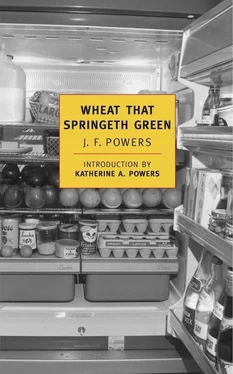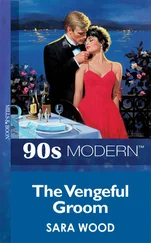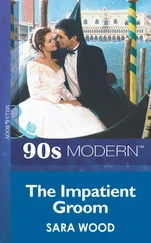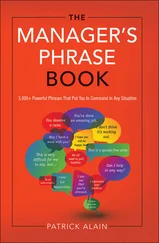J. Powers - Wheat That Springeth Green
Здесь есть возможность читать онлайн «J. Powers - Wheat That Springeth Green» весь текст электронной книги совершенно бесплатно (целиком полную версию без сокращений). В некоторых случаях можно слушать аудио, скачать через торрент в формате fb2 и присутствует краткое содержание. Год выпуска: 2000, Издательство: NYRB Classics, Жанр: Современная проза, на английском языке. Описание произведения, (предисловие) а так же отзывы посетителей доступны на портале библиотеки ЛибКат.
- Название:Wheat That Springeth Green
- Автор:
- Издательство:NYRB Classics
- Жанр:
- Год:2000
- ISBN:нет данных
- Рейтинг книги:5 / 5. Голосов: 1
-
Избранное:Добавить в избранное
- Отзывы:
-
Ваша оценка:
- 100
- 1
- 2
- 3
- 4
- 5
Wheat That Springeth Green: краткое содержание, описание и аннотация
Предлагаем к чтению аннотацию, описание, краткое содержание или предисловие (зависит от того, что написал сам автор книги «Wheat That Springeth Green»). Если вы не нашли необходимую информацию о книге — напишите в комментариях, мы постараемся отыскать её.
Wheat That Springeth Green — читать онлайн бесплатно полную книгу (весь текст) целиком
Ниже представлен текст книги, разбитый по страницам. Система сохранения места последней прочитанной страницы, позволяет с удобством читать онлайн бесплатно книгу «Wheat That Springeth Green», без необходимости каждый раз заново искать на чём Вы остановились. Поставьте закладку, и сможете в любой момент перейти на страницу, на которой закончили чтение.
Интервал:
Закладка:
“And you think you’ll make it by going after dp’s?” Delinquent parishioners.
“I’m thinking of everything, Lou.”
“Bank loan?”
“Everything, Lou.”
“Swallow your pride, Joe. Do what I’m going to do. Put it to your people— up to your people, I mean.”
“A distinction so fine as to make no difference. I’m sorry, Lou.” And Joe hung up.
Addressing himself to his list — he had let irritation shake him from a methodical approach to his problem — he drew a line through (A) OTHERS? underscored (B) PEOPLE, NO! and circled (C) DP’S. And — knowing where he stood now, alone — tore up his list.
22. ROOMY TWO-HEARTED RECTORY
SO JOE’S EVENING routine had to change and did.
After dinner, as heretofore, he’d work a few innings in the yard with Bill and take a much needed bath, but then instead of retiring to the study he’d go off in his car with his list, having told Bill only “Some calls to make.”
His list, comprising over a third of the families in the parish, was alphabetical. But his modus operandi, after a week, was still random: to cruise around until he sighted the man or woman of the house out on the lawn, or a child (“Hi, cowboy, what’s your name?”) who might lead him to them. Before he got down to business, he was not above saying where circumstances warranted it, “Heard you went to Europe,” or “See you had the house painted,” or “Thought only golf courses had mowers like that.”
This, then, was what he’d come to, because he’d hoped to spare himself and his parishioners money talk from the pulpit. And because he who seeks to save his life shall lose it? And because, if an idle mind is the devil’s workshop, the Chancery was an industrial park? He could hear it now. “Hey, Ordinary, ’member what Denver told you at the National Con and you laughed in his face? Says here he made it with half a mil to spare.” “Well, I’ll be fricked. Get me Denver, honey. Truck? Albert here. Congrats. Off the record, those numbers for real? O.K., O.K. Relax. I didn’t say you’re a liar. What’s the story? Use electric canes, or what? M, M and M, Chicago, huh? Will do, Truck, and thanks a mil — make that two.”
He was averaging only three calls an evening. At first, he was slow to get down to business, and now, knowing that nothing much happened when he did, he was slower. He would begin by suggesting that failure to keep up payments, or to contribute at all, was probably an oversight — this was generally rejected, not, he thought, for its mendacity but for the obligation there was in it to do better in future. He was hindered, sometimes, by the absence of the spouse who ran the show (who, in one case, to judge by what Joe could hear of the telephone conversation, was being warned, for a change, not to come home right away). In any case, people had all kinds of reasons for being dp’s.
“I’m gonna be transferred again, knew all along I would be”; “My wife’s not a Catholic, Father”; “My husband’s not a Catholic, Father”; “We don’t know how long this marriage will last, do we, dear?”; “If the kids were school age, Father, it’d be different”; “Neither one of us is what you might call devout, Father, and with no kids”; “Just haven’t got it, Father, and don’t know what you can do”; “Glad you don’t talk about money in church, Father, want you to know that”; “Father, you should talk about money in church — it’d be more like church — and I guess that’s my advice to you”; “Sure, I signed up, but it didn’t work out, and now I just contribute when and what I can”; “You find a five-dollar bill in the flower collection, Father, that’s probably mine”; “Father, you say the Church always comes last, and you may be right about that, but not when you say people have money for everything else— we don’t”; “My husband and I haven’t recovered from the rectory yet. Pretty roomy, seems to us, for two bachelors. So you lived in a room in the school. Big deal. You should be living in a tent.”
Yes, there were times when Joe felt like tearing his garments and, for an encore, singing “Laugh, Clown, Laugh.”
After his last call, thank God, he sped home to his reward — a drink or two or three, maybe an old movie on TV, or the Twins if they were playing on the West Coast, and yes, priestly fellowship, in which Bill, for some reason, was showing more interest these nights, trying, it seemed, to learn from Joe. This was only as it should be in the pastor-curate relationship, but was new and different in theirs, making for more give and take, Joe doing his best for Bill, even if he sometimes lost by it, by telling the truth.
One night he confessed that, in the matter of taking up the collections on the day of his first Mass, he had attempted to buy off the pastor, and furthermore would do so again if he had his life to live over, but would not, he hoped, grab the empty envelope again, or hole up in the boys’ washroom. “‘Joseph, you should be ashamed of yourself,’ he said. Those were his last words. He hasn’t spoken to me since.” “But at your Mass you did take up the collection?” “Thanks to Toohey, yes. I didn’t see any way out of it. I still don’t.”
One night, speaking of his first appointment, he was at pains to present Van as someone in a great tradition of the Church and not as some kind of nut, as Bill appeared to think when told of Van’s horny knees. “He was trying to go all the way, Bill, and still is, I guess. I was like that myself — just a tenderfoot, though — when I went to Holy Faith. But I soon woke up, or gave up, however you look at it.”
“What happened to your hair shirt?”
“I buried it.”
“Joe, where do you stand on all that now?”
“I’m sitting down.”
“That’s how you look at it?”
“Yes, because that’s how it is.”
That night, talking during commercials, they were watching an old movie, new to them, in which Tyrone Power, employed by a carnival traveling through a part of the South that looked a lot like California, had drunk himself out of his good job as a barker and now, fit for nothing else and attracted by the pay, a bottle a day, had accepted the job of geek, which seemed to mean that he — yes — bit off the heads of live poultry. Ugh.
“That,” Joe said, rising from his BarcaLounger, “calls for a drink.”
Bill, when Joe came out of the bathroom with their drinks, said, “Man here to see you this evening. A Mr McMaster.”
“Who?”
Bill must have seen that Joe recognized the name, and did not repeat it. “Just a courtesy call, he said.”
“Uh-huh.”
“Said just to tell you he’d call again.”
“Uh-huh. Thanks.”
At the next break for a commercial, Bill said, “Everybody’s talking about it, all my classmates.”
“Alka-Seltzer?”
“This drive. Arf.”
“That so?”
“Joe, you think I don’t know what you’re doing these nights when you go out?”
Joe gazed straight ahead, at the tube, and said nothing.
“You’re trying to raise money.”
“ So? ” But not looking at Bill.
“You’re in a bind.”
“So?” Still not looking at him.
“Joe, I think you should’ve said something to me about this.”
“Why?” Studying the action in a commercial for breakfast cereal, actually interested in it, a sack race.
“Why not ?”
“Sack race.”
“Yeah, I can see.”
“Not a hundred-yard dash. Not a mile run.”
“Joe, I don’t know what you’re talking about.”
“It’s a sack race, Bill. The priesthood.”
Читать дальшеИнтервал:
Закладка:
Похожие книги на «Wheat That Springeth Green»
Представляем Вашему вниманию похожие книги на «Wheat That Springeth Green» списком для выбора. Мы отобрали схожую по названию и смыслу литературу в надежде предоставить читателям больше вариантов отыскать новые, интересные, ещё непрочитанные произведения.
Обсуждение, отзывы о книге «Wheat That Springeth Green» и просто собственные мнения читателей. Оставьте ваши комментарии, напишите, что Вы думаете о произведении, его смысле или главных героях. Укажите что конкретно понравилось, а что нет, и почему Вы так считаете.












